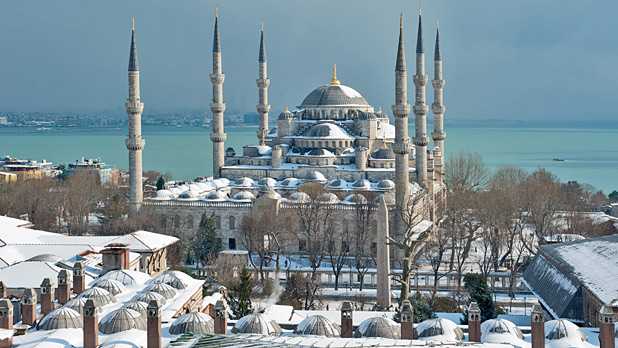They will be telling the whole wide world how terrible us Turks are!
After all we have systematically killed whoever sat a foot in Anatolia just for the sake of it!We never, ever had an Independence War!
We were never, ever insulted, abused, massacred, invaded etc.!
Please React!
As the ABC promotes Have Your Say!
Don’t forget both SBS and ABC reject to screen the documentary Armenian Revolt!
Family Footsteps – Armenia
8:30pm Thursday, 28 Aug 2008
Documentary CC PG
Family Footsteps, series two, takes us once again on an intimate journey into the lives of four young Australians as they travel back to the homeland of their parents in search of answers, a sense of belonging and for some, the chance to lay ghosts to rest. The four-part series takes us to Armenia, Uganda, Tonga and Cambodia.
In the first episode we follow the adventures of graphic artist Joanna Kambourian from NSW who has grown up knowing very little about her Armenian culture. Overshadowing her family is a sense of shame, hiding a secret that has kept them from returning to their homeland. It weighs heavily on Joanna as she travels to Armenia in the quest to remove the stain that has haunted her family for several generations.
Joanna has always longed to go to an Armenian school, be taught the language and customs of her ancient culture but her father didn’t think it was that important. So with few cultural references Joanna, 31, embarks on her own voyage of cultural exploration.
It is 40 degrees in the small country town of Coraki in NSW and Joanna is packing her winter clothes. Temperatures in Armenia are 10 below zero. As she arrives, snow covers the tiny mountainous country that lies to the east of Turkey, sharing borders with Georgia, Azerbaijan and Iran. Here she will live with her mentor Tehmineh the local schoolteacher who shares her home with her husband Ara and mother-in-law Jemma. They welcome Joanna as part of their family.
The next day Joanna starts her job in the local bakery. The local women have been making Lavash bread using the same techniques for centuries. As their days unfold Tehmineh continues to teach her students in the morning and in the afternoon introduces Joanna to the subtleties of Armenian culture.
With Tehmineh’s help Joanna begins to investigate the history of her family’s flight from Armenia and the story of betrayal that lies behind it. They visit an historian, an expert in the Armenian genocide, who explains that in 1915 under the cover of WWI the Turks began a systematic genocide of the Christians and Armenians living in the Ottoman Empire. Joanna confesses that her great, great, grandfather was the surgeon general in the Turkish army at that time, and to save his family and his life he converted to Islam.
As her journey draws to a close Tehmineh offers Joanna the chance to take part in an ancient pagan ritual to give thanks for the transition she and her family have made.’




